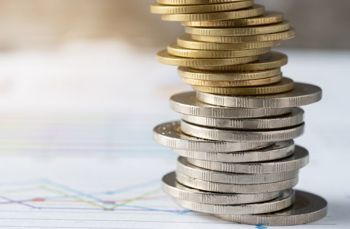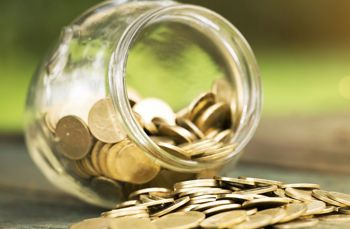VAT treatment rules: Why Jaffa Cakes have an important role to play in Expenses
It may seem that the humble cake/chocolate combination couldn’t possibly have anything to do with VAT but you may be surprised to learn that the Jaffa Cake was at the heart of a famous and important VAT case some years ago. Keep on reading to learn more about VAT on expenses and how you can use this to your advantage.
What is a Jaffa Cake?
This might seem like a stupid question – surely it’s a cake as the clue is in the name.
But HMRC took a different view and argued that in fact, the Jaffa Cake is a biscuit — and this is where VAT treatment rules come into effect.
Why does this matter?
Because cakes and chocolate-covered biscuits are treated differently for VAT with cakes being Zero Rated and chocolate biscuits being Standard Rated for VAT purposes.
Whilst this might seem to be a bit of a fine line it does have some important lessons for us when we are thinking about claiming back VAT on expenses.
The background
When VAT was introduced back in 1973 there was a fairly consistent rule that luxury goods would be taxed and so-called essentials would not be. This gave rise to the zero and standard ratings that we see today.
Staple foods were seen as an essential and so not taxed but as you would expect at the margins there were some grey areas.
Biscuits are a good example of one of these in that ordinary plain biscuits are seen as a staple and zero-rated but a biscuit that is in HMRC’s words ‘…wholly or partially covered in chocolate…’ is a luxury item and are taxed as such.
Cakes then are a staple item but Jaffa cakes look like a chocolate-covered biscuit and in HMRC’s view were designed to be eaten as a snack item in the same way as a biscuit. Indeed, you usually find them in the supermarket aisles next to the digestives and rich teas.
Despite Jaffa Cakes being accepted as zero rated from the very start of VAT, HMRC changed its mind and if they could prove that these were biscuits and not cakes then VAT would have to be levied and McVities would be faced with what was reported to be a £3m bill.
What happened?
The case went through a long legal process that ended up in front of a VAT tribunal.
In the judgement, it was found that the product’s name was a minor consideration. Just because it was called a ‘cake’ doesn’t make it so.
The tribunal also importantly noted that Jaffa cakes have the texture and ingredients of sponge cake and that the sponge part of a Jaffa cake is a substantial part of the product in terms of bulk and texture when eaten.
The most widely reported aspect of the case was that upon going stale, a Jaffa cake goes hard like a cake rather than soft like a biscuit.
Consequently, the tribunal decided that in fact, the humble Jaffa Cake is a cake and therefore a zero-rated foodstuff.
This might seem like a long-winded and costly way of deciding the fate of a humble snack but it’s not unusual. In fact, there were some very similar cases regarding Tea-cakes and pringles!
VAT treatment rules: The bottom line
The first point is that you need to be really careful about what you try and claim back on your VAT return. It’s not inconceivable that a manager might buy some biscuits for a team meeting and claim them back on expenses, but would they be biscuits or cakes?
Of course, the Jaffa cake case is an example and the principle can be replicated across anything that you might reimburse on expenses.
VAT rules can appear remarkably inconsistent and as such, it is important to make sure that you are applying the correct treatment, even to things that seem as straightforward as the humble Jaffa Cake.
The second thing to say is that we need to keep a weather eye on VAT case law. This changes all the time and should McVities have lost their case then the VAT treatment of one of their main products would have been radically altered.
As a consequence, the advice has to be that you shouldn’t treat things in a particular way just because they have always been treated in that way. Things change and a periodical review is a good idea.
Looking for more advice on VAT on expenses?
We've got many articles and three in-depth guides for you to use when mastering VAT on expenses.
VAT on expenses guides
Handy guides for you to download and keep in your back pocket.

The ultimate guide to VAT on expenses
Master the basics of VAT on expenses and be confident in what you can claim for with this guide.

The 7 step guide to getting compliant
Ensuring you get, and stay, VAT compliant with Expenses can seem like a mammoth task. With our step by step guide, you can be confident you're not missing a thing.

The guide for what you could be missing
Whether you're a VAT veteran or a VAT virgin, VAT on expenses can still be a subject that gives accountants sleepless nights. This guide walks you through all of those commonly missed items in one download.
VAT on expenses information and advice

The basics of subsistence and VAT
Go to article
Mileage allowance and VAT
Go to article
10 tips to help you manage your expenses and VAT
Go to article
Rules on expenses and VAT when staying away from home on business
Go to article
Features of a great expense management system
Go to article
VAT on staff business travel
Go to article
Should you add VAT to expenses your customers will be paying?
Go to article
Writing your expenses policy - the things to think about
Go to article